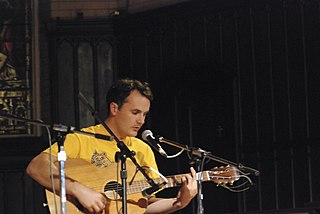A Quote by Stewart Butterfield
About 80 percent of the photos on Flickr are public and searchable by everyone. In one sense, it's a place where people upload snapshots from the family reunion, wedding or the birth of a baby or something like that, but it's also a place where people go to show what the world looks like to them.
Related Quotes
I love my family but my family - they're the type of people that never let you forget anything you ever did... I was in the first grade Christmas play - I'm playing Mary. Now, during the course of the play, I dropped the baby Jesus... They still talk about this. I go to my family reunion, and one of my cousins just had a baby. So I'm like, 'Oh, that's a cute little baby. Let me hold the baby...' And my aunt runs over, 'Don't you give her that baby! You know she dropped the baby Jesus!'
Instagram is a media company. I think we're about visual media. I explain ourselves as a disruptive entertainment platform that enables communication through visual media. I don't think it's just photos. There's a reason we don't allow you to upload photos on the Web as albums. It's not about taking all these photos off your DSLR putting them into an album and sharing them with your family. It's not about that. It's about what are you up to right now out in the real world, how can you share that with everyone.
I've always thought of myself as an 80 percenter. I like to throw myself passionately into a sport or activity until I reach about an 80 percent proficiency level. To go beyond that requires an obsession that doesn't appeal to me. Once I reach 80 percent level I like to go off and do something totally different; that probably explains the diversity of the Patagonia product like - and why our versatile, multifaceted clothes are the most successful.
When we [adoption agency] have a birth mother who is pregnant and she doesn't know the race of the father, she is using drugs, and she is in crisis, usually we cannot place that baby with a heterosexual family. Almost all of the times when we have a drug-addicted child, we place the baby in a homosexual family.
I’ve had that kind of experience myself: I’m looking at a map and I see someplace that makes me think, ‘I absolutely have to go to this place, no matter what’. And most of the time, for some reason, the place is far away and hard to get to. I feel this overwhelming desire to know what kind of scenery the place has, or what people are doing there. It’s like measles - you can’t show other people exactly where the passion comes from. It’s curiosity in the purest sense. An inexplicable inspiration.
Economists often talk about the 80/20 Principle, which is the idea that in any situation roughly 80 percent of the “work” will be done by 20 percent of the participants. In most societies, 20 percent of criminals commit 80 percent of crimes. Twenty percent of motorists cause 80 percent of all accidents. Twenty percent of beer drinkers drink 80 percent of all beer. When it comes to epidemics, though, this disproportionality becomes even more extreme: a tiny percentage of people do the majority of the work.
I'm not in the media that much, so people don't know my personality very well - they just know my work. I feel bad for people who have to read about my personal life and my relationships and see photos of me going through security at an airport. It's like watching a commercial for a hamburger that looks delicious, like a Big Mac, and then going to where they make it and taking photos of what it looks like behind the counter, and it's horrifying.
Even in areas like the most depressed region of India in terms of female education, namely Rajasthan, which has [one of] the lowest female literacy [rates] in India. Even there, 80 to 90 percent of the parents would like their girls to go to school. And indeed, about 80 percent would like them to be made compulsory.
Learning that aesthetic as a kid - seeing those photos - made me think that that's what photos are supposed to look like. I never understood snapshots. I was looking at them like, "This is horrible; that's not what a picture is supposed to look like." I was taught by these photos. So when I picked up the camera, though I had never done it before, I kind of already knew what I was doing.
Unless there is a strong sense of place there is no travel writing, but it need not come from topographical description; dialogue can also convey a sense of place. Even so, I insist, the traveler invents the place. Feeling compelled to comment on my travel books, people say to me, "I went there"---China, India, the Pacific, Albania-- "and it wasn't like that." I say, "Because I am not you.
..this is just like life must be for about 99 percent of the people in the world. You're in this place. There's other people all around you, but they don't understand you and you don't understand them, but people do a lot of pointless babbling anyway. In order to stay alive, you have to spend all day every day doing stupid meaningless work. And the only way to get out of it is to quit, cut loose, take a flyer, and go off into the wicked world, where you will be swallowed up and never heard from again.


































